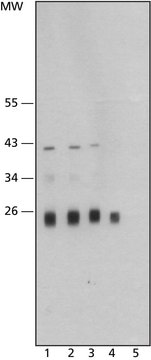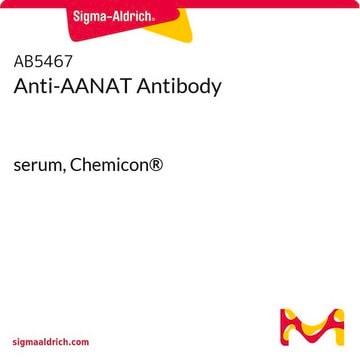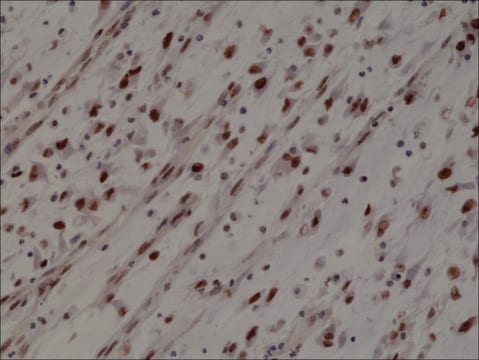C2970
Monoclonal Anti-Cathepsin L antibody produced in mouse
clone 33/2, ascites fluid
Synonyme(s) :
Anti-CATL, Anti-CTSL, Anti-MEP
About This Item
Produits recommandés
Source biologique
mouse
Niveau de qualité
Conjugué
unconjugated
Forme d'anticorps
ascites fluid
Type de produit anticorps
primary antibodies
Clone
33/2, monoclonal
Poids mol.
antigen (human cathepsin L) 25 kDa
antigen (human procathepsin L) 42 kDa
Contient
15 mM sodium azide
Espèces réactives
mouse, mink, human, rat
Technique(s)
immunohistochemistry (frozen sections): suitable
indirect ELISA: suitable
microarray: suitable
western blot: 1:200 using whole cell extract of a cultured mink lung cell line
Isotype
IgG1
Numéro d'accès UniProt
Conditions d'expédition
dry ice
Température de stockage
−20°C
Modification post-traductionnelle de la cible
unmodified
Informations sur le gène
human ... CTSL1(1514)
mouse ... Ctsl(13039)
rat ... Ctsl1(25697)
Vous recherchez des produits similaires ? Visite Guide de comparaison des produits
Description générale
Spécificité
Immunogène
Actions biochimiques/physiologiques
Clause de non-responsabilité
Vous ne trouvez pas le bon produit ?
Essayez notre Outil de sélection de produits.
En option
Produit(s) apparenté(s)
Code de la classe de stockage
10 - Combustible liquids
Classe de danger pour l'eau (WGK)
nwg
Point d'éclair (°F)
Not applicable
Point d'éclair (°C)
Not applicable
Certificats d'analyse (COA)
Recherchez un Certificats d'analyse (COA) en saisissant le numéro de lot du produit. Les numéros de lot figurent sur l'étiquette du produit après les mots "Lot" ou "Batch".
Déjà en possession de ce produit ?
Retrouvez la documentation relative aux produits que vous avez récemment achetés dans la Bibliothèque de documents.
Notre équipe de scientifiques dispose d'une expérience dans tous les secteurs de la recherche, notamment en sciences de la vie, science des matériaux, synthèse chimique, chromatographie, analyse et dans de nombreux autres domaines..
Contacter notre Service technique








